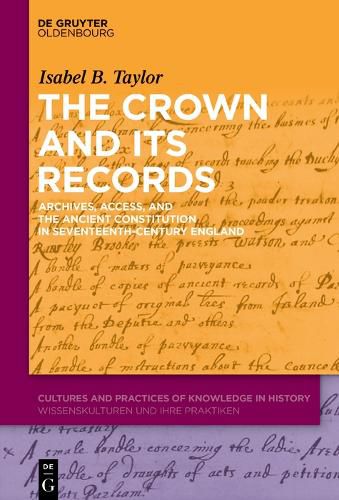Readings Newsletter
Become a Readings Member to make your shopping experience even easier.
Sign in or sign up for free!
You’re not far away from qualifying for FREE standard shipping within Australia
You’ve qualified for FREE standard shipping within Australia
The cart is loading…






Archives are popularly seen as liminal, obscure spaces -- a perception far removed from the early modern reality. This examination of the central English archival system in the period before 1700 highlights the role played by the public records repositories in furnishing precedents for the constitutional struggle between Crown and Parliament. It traces the deployment of archival research in these controversies by three individuals who were at various points occupied with the keeping of records: Sir Robert Cotton, John Selden, and William Prynne. The book concludes by investigating the secretive State Paper Office, home of the arcana imperii, and its involvement in the government's intelligence network: notably the engagement of its most prominent Keeper Sir Thomas Wilson in judicial and political intrigue on behalf of the Crown.
?
?
$9.00 standard shipping within Australia
FREE standard shipping within Australia for orders over $100.00
Express & International shipping calculated at checkout
Archives are popularly seen as liminal, obscure spaces -- a perception far removed from the early modern reality. This examination of the central English archival system in the period before 1700 highlights the role played by the public records repositories in furnishing precedents for the constitutional struggle between Crown and Parliament. It traces the deployment of archival research in these controversies by three individuals who were at various points occupied with the keeping of records: Sir Robert Cotton, John Selden, and William Prynne. The book concludes by investigating the secretive State Paper Office, home of the arcana imperii, and its involvement in the government's intelligence network: notably the engagement of its most prominent Keeper Sir Thomas Wilson in judicial and political intrigue on behalf of the Crown.
?
?